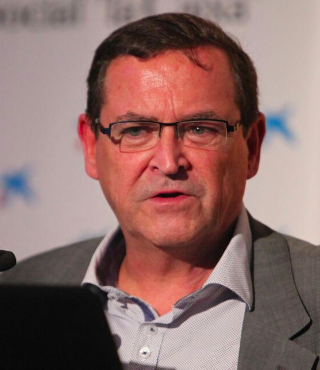
Ian MacQuillin: Fundraising should be a career choice, not an accident
September 15, 2020
EU High Value Datasets: What do they mean for the philanthropic sector?
October 7, 2020While many European markets have been hit hard by the pandemic and social distancing restrictions, the impact has been particularly brutal in Spain, bringing a 17% drop in GDP. As cases continue to rise across Spain, Ricard Valls Riera of Zohar Consultoria & Marketing Social explores what this means for fundraisers across the nation and beyond.
Charitable giving and fundraising have changed markedly in recent months. While some of those evolutions were already on the cards in 2019, many are a direct result of the COVID-19 crisis and others have simply been accelerated by it. What’s changing and what will this mean for the future?
Donor numbers in decline
Most noticeably, we will see fewer individual donors. For nonprofit organisations – certainly the larger ones – the focus is on regular giving, with more than 85% of income coming from monthly donors, many of whom were brought on board through face-to-face and telemarketing. So, perhaps the time has come for more of a focus on supporters who lie in that middle ground between these regular donors and major philanthropists, instead of the current one-size-fits-all approach.
At the start of the Spanish financial crisis in 2008-09, the number of supporters dropped by around 10% to 15%. If we’re facing similar figures, nonprofits will need to invest heavily in donor loyalty to prevent further supporter losses. After all, for the next couple of years at least, it will be difficult to replace these withdrawals with new donors, due to the challenge of recruiting supporters face-to-face. Plus, the decline in wages and employment will limit the capacity of families to give. Faced with the fear of economic uncertainty, families are choosing to save rather than spend. Donors should be reminded that their donations are now more important than ever.
Unlike the UK market, events are part of the fundraising mix in Spain, but they rarely yield a fundamental level of income, with the exception of some research, health and local organisations. So, the limitations imposed by COVID-19 for events are unlikely to have such a significant impact across the sector.
Changing funding models for nonprofits
The lockdown is affecting all sources of income, ranging from foundations to the sale of services, particularly in the cultural, social or educational fields. Nonprofits working at a local level or in the fields of social welfare, research and health, will surely have greater capacity to raise funds than much of the rest of the sector, who will need to make structural changes and potentially to radically alter their funding model.
Unlike in the USA, banking and grant foundations in the EU and Spain – due to lower profitability levels – are likely to reduce their budgets from 2021 to 2023. However, dependence on foundations is relatively low in Spain.
Companies have responded to the COVID-19 emergency with a very high commitment to donate, especially to hospitals and also to the government(!). The majority of businesses are already strongly affected by COVID, although some have been able to build and strengthen during this time. So, while corporate giving will suffer where businesses are in crisis, I’m expecting to see partnerships with nonprofits increase. The corporate movement towards a purpose-driven philosophy, with businesses increasingly seeking to positively influence the world around them is of course a positive step, which may create more opportunities for charities and partnership working.
Activating supporter ambassadors online
Online donor recruitment has been the trend for months: but we have yet to see its growth capacity and the potential impact on advertising costs. We need to be able to activate those committed donors as our ambassadors – acting as our F2F team among their friendship groups and contacts.
Organisations will have to develop their online community of donors. Supporter relationships shouldn’t be like paying for a utility, such as electricity and gas. We have to change that relationship and ensure it isn’t too passive, and that means knowing our supporters and what they want from us. As Mark Phillips says in this Queer Ideas blog, some donors give to focus on a problem, while others give to forget. The more we understand their drivers, the better we can build on those relationships and deepen supporter commitment.
The need to grow, change and adapt
And, as in 2008, we may simply have to learn to survive with fewer donors and fewer resources. We have to grow, change and adapt. In other words, we have to innovate, to try new things and not to fear making a few mistakes along the way. After all, the virus will remain a big part of our world for some time yet. It’s up to us to re-invent the future for our organisations, our supporters and beneficiaries.
Related feature:
Future-proofing fundraising for a pandemic world
What do you think?
Are these changes reflected in your national market? How is your fundraising environment changing? What are the opportunities and challenges for re-shaping fundraising and the donor market? To continue the discussion, comment via our Linked In page.

About Ricard Valls Riera
CEO of Zohar Consultoria & Marketing Social, Ricard has over 30 years of experience in consulting and fundraising strategy for nonprofits, NGOs, universities, hospitals and research. Ricard is the global leader of #GivingTuesday Spain and author of “Como captar fondos con éxito”. He is also a founder and ex-treasurer of EFA. Follow him on Twitter: @rvalls.




